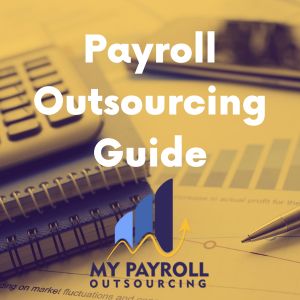
Simplifying Employee Payments: Why Direct Deposit is a Win-Win
In today’s fast-paced business world, efficiency in payroll management is crucial. Direct deposit stands out as a modern solution that simplifies the process of employee payments, offering substantial benefits to both employers and employees. This blog explores the myriad advantages of direct deposit, showcasing why it’s a win-win scenario for all involved parties.
The Employer’s Perspective on Direct Deposit Services
For any business, large or small, the efficiency of operations and the effectiveness of cost management are pivotal. In the realm of payroll processing, direct deposit stands out as a solution that significantly enhances both these aspects. Here, we explore in detail how direct deposit offers efficiency and cost-effectiveness for employers.
Streamlining Payroll Processing
Direct deposit automates the distribution of employee wages, which simplifies the payroll process in several ways:
- Reduced Processing Time: By eliminating the need for printing, signing, and distributing checks, direct deposit considerably reduces the time spent on payroll processing each cycle.
- Minimized Errors: Automation reduces the risk of errors associated with manual check writing, such as incorrect amounts or misspelled names, which can be costly and time-consuming to rectify.
- Simplified Record Keeping: Digital transactions are easier to track and record, simplifying the accounting process and ensuring more accurate financial records.
Cost Reduction in Payroll Management
The financial benefits of direct deposit for employers are substantial:
- Lower Transaction Costs: While issuing paper checks incurs costs for printing, paper, envelopes, and postage, direct deposit transactions often involve lower fees.
- Reduced Need for Reconciliation and Stop Payments: Lost or stolen checks can result in additional costs for stop payments and reissuing checks. Direct deposit eliminates these risks and associated costs.
- Decreased Reliance on Physical Resources: The move away from paper checks aligns with the growing trend of digitalization, reducing the need for physical resources and the costs associated with storing and securing them.

Enhancing Operational Efficiency
The impact of direct deposit extends beyond just the payroll department:
- Less Time Spent on Payday Inquiries: Employees often have questions or issues on payday with physical checks. Direct deposit provides a clear and consistent payment process, reducing the time HR and accounting staff spend addressing these queries.
- Improved Employee Productivity: When employees are confident in the reliability and timeliness of their payment, they are likely to be more focused and productive.
Environmental Impact
In today’s eco-conscious business environment, the environmental impact of operational choices is increasingly important:
- Reduced Paper Waste: Direct deposit is an environmentally friendly option, cutting down on the use of paper, thereby supporting sustainability initiatives.
- Lower Carbon Footprint: By reducing the need for physical transportation of checks, direct deposit contributes to a decrease in the overall carbon footprint of the business.
The efficiency and cost-effectiveness of direct deposit make it a compelling choice for employers looking to optimize their payroll processes. By embracing this automated solution, businesses can not only save time and money but also enhance their operational efficiency and contribute to environmental sustainability.
The Employee’s Perspective: Convenience and Security
While direct deposit offers a range of benefits for employers, its advantages are equally significant from an employee’s standpoint. This section explores how direct deposit services positively impact the lives of employees, enhancing their experience and satisfaction in the workplace.
Timely and Reliable Payment
One of the most appreciated aspects of direct deposit by employees is the assurance of receiving their pay on time, every time. Unlike traditional checks that can be delayed or lost, direct deposit ensures that wages are deposited into employees’ accounts on payday. This reliability is especially crucial for employees who have time-sensitive financial commitments.
Convenience and Accessibility
The convenience that comes with direct deposit is a significant advantage for employees. It eliminates the need to physically deposit or cash checks, saving time and hassle. Funds are immediately available for use, whether for online transactions, bill payments, or withdrawals from ATMs. This immediate accessibility is particularly beneficial for employees who may not have easy access to banking services.
Enhanced Financial Security
Direct deposit provides a secure way of receiving payment. Employees are relieved from concerns about checks being stolen, lost, or damaged. This security is important for peace of mind, especially when it involves sensitive financial transactions. Additionally, direct deposit eliminates the risk of fraud associated with paper checks.

Better Financial Management
For many employees, direct deposit aids in managing their finances more effectively. It allows for easier budgeting and financial planning as employees can anticipate the exact timing of their pay. Furthermore, many direct deposit services offer options to split deposits into different accounts, aiding employees in better managing savings and expenses.
Environmental Considerations
Employees today are increasingly conscious of their environmental impact. Direct deposit aligns with environmentally friendly practices by reducing paper usage. This aspect of direct deposit resonates with environmentally conscious employees who prefer to support and work for businesses that demonstrate a commitment to sustainability.
The Psychological Benefits
There’s also a psychological comfort that comes with the reliability and efficiency of direct deposit. Employees feel valued and taken care of when their financial remuneration is handled professionally and efficiently. This sense of security can lead to increased job satisfaction and loyalty towards the employer.
From an employee’s perspective, direct deposit isn’t just a modern convenience; it’s a comprehensive solution that addresses various aspects of financial and personal well-being. The certainty, security, and efficiency it provides contribute significantly to an employee’s overall satisfaction with their workplace’s payroll system.
Integrating Direct Deposit into Business Operations
For businesses looking to transition to direct deposit for payroll, the process involves a series of steps that ensure a smooth integration. Here, we outline the key actions business owners can take to effectively implement direct deposit in their operations.
Step 1: Selecting a Direct Deposit Service Provider
- Research Providers: Start by researching and selecting a direct deposit service provider. Look for providers who offer reliable services, user-friendly platforms, and strong customer support.
- Compare Features and Costs: Evaluate the features each service offers, such as integration capabilities with your existing payroll system, along with the costs involved.
Step 2: Setting Up the Direct Deposit System
- Collaboration with Provider: Work closely with your chosen provider to set up the direct deposit system. This may involve installing software or setting up online platforms.
- Integration with Payroll System: Ensure the direct deposit system integrates seamlessly with your existing payroll software for efficient data management.
Step 3: Collecting Employee Banking Information
- Secure Data Collection: Collect banking information from employees, including bank name, account number, and routing number. Ensure this process adheres to privacy laws and secure data handling practices.
- Confidentiality Assurance: Provide assurance to employees about the confidentiality and security of their banking information to encourage participation.

Step 4: Conducting a Test Run
- Initial Testing: Before fully implementing direct deposit, conduct a test run with a small group of employees. This helps identify and rectify any issues in the system.
- Feedback Collection: Gather feedback from the test group to make any necessary adjustments for a smoother process.
Step 5: Employee Education and Enrollment
- Inform and Educate Employees: Communicate with employees about the transition to direct deposit. Provide clear information on how it works, its benefits, and the timeline for implementation.
- Assist in Enrollment: Offer assistance to employees in enrolling for direct deposit, addressing any queries or concerns they may have.
Step 6: Full Implementation and Monitoring
- Rollout the Service: After successful testing and employee enrollment, fully implement the direct deposit service for all payroll transactions.
- Ongoing Monitoring and Support: Continuously monitor the system for any issues and provide ongoing support to employees as needed.
Step 7: Evaluating and Adjusting the System
- Regular Evaluation: Regularly evaluate the efficiency and effectiveness of the direct deposit system. Look for areas that can be improved.
- Making Adjustments: Be open to making adjustments based on employee feedback and evolving business needs.
Integrating direct deposit into your business operations can significantly streamline your payroll process and enhance overall efficiency. By following these steps, you can ensure a smooth transition to this modern payroll solution. Remember, the key to successful implementation lies in choosing the right provider, ensuring secure data handling, effectively communicating with employees, and ongoing monitoring and adjustment.

What to Look for When Considering a Direct Deposit Service
Selecting the right direct deposit service is a critical decision for any business. The ideal service should not only meet your current payroll needs but also adapt to future changes and growth. Here are key factors to consider when evaluating a direct deposit service provider.
Reliability and Track Record
- Proven Reliability: Choose a provider with a proven track record of reliability and accuracy in processing payments. Delays or errors in payroll can significantly impact employee trust and satisfaction.
- Industry Reputation: Consider the provider’s reputation in the industry. Look for reviews or testimonials from other businesses to gauge their performance and service quality.
Integration Capabilities
- Seamless Integration: The service should seamlessly integrate with your existing payroll system. This integration is crucial for ensuring that the transition is smooth and does not disrupt your current operations.
- Compatibility with Software: Ensure that the direct deposit service is compatible with the payroll software you are currently using or plan to use in the future.
Security Features
- Data Protection: Given the sensitivity of financial and personal data involved in payroll processing, the service must have robust security measures in place to protect against data breaches and fraud.
- Compliance Standards: The provider should comply with all relevant financial regulations and standards, ensuring that your business remains compliant with legal requirements.
User-Friendly Interface
- Ease of Use: A user-friendly interface for managing payroll and direct deposits is essential. It should be intuitive enough for your payroll team to efficiently manage and operate.
- Accessibility: Consider the accessibility of the service, including mobile access and cloud-based options, to ensure you can manage payroll anytime and from anywhere.
Customer Support
- Responsive Support: Strong customer support is crucial. Look for a provider that offers comprehensive support, including help with setup, troubleshooting, and any queries that arise.
- Training and Resources: The best providers offer training and resources to help you and your team understand and maximize the use of their service.

Cost Structure
- Transparent Pricing: Understand the pricing structure of the service. It should be transparent, without hidden fees or charges.
- Cost-Effectiveness: Evaluate the cost against the features and benefits offered. The service should be cost-effective, providing value without straining your business’s budget.
Scalability
- Growth Accommodation: Choose a service that can grow with your business. It should be able to handle an increasing number of transactions and adapt to changing business needs.
Choosing the right direct deposit service is vital for the smooth functioning of your payroll system. By focusing on reliability, integration capabilities, security, user-friendliness, customer support, cost, and scalability, you can select a service that not only meets your immediate payroll needs but also supports your business’s growth in the long term.
Considerations in Selecting a Direct Deposit Service
Beyond the primary factors already discussed, there are additional considerations that can influence your decision when choosing a direct deposit service. These elements ensure that the service you select aligns perfectly with your business’s payroll needs and overall operational strategies.
Customization and Flexibility
- Tailored Solutions: Look for a service that offers customization options. Each business has unique payroll needs, and a one-size-fits-all approach may not be the most efficient.
- Flexible Scheduling: The ability to schedule deposits according to your specific payroll cycle, whether weekly, bi-weekly, or monthly, is a significant advantage.
Reporting and Analytics
- Detailed Reporting: A service that provides comprehensive reporting capabilities can be invaluable. Detailed reports can help you track payroll expenses, understand cash flow patterns, and make informed financial decisions.
- Analytical Tools: Some services offer analytical tools that can give insights into payroll trends, helping you optimize your financial management.
Employee Benefits
- Employee Financial Tools: Services that offer additional tools or benefits for employees, such as early wage access or financial wellness resources, can be a plus. These features can enhance employee satisfaction and loyalty.
- Easy Enrollment Process: The ease with which your employees can enroll in and manage their direct deposit accounts is crucial. A straightforward, hassle-free enrollment process is essential for high employee participation.
Compliance Updates
- Regular Compliance Updates: In the ever-changing financial landscape, ensure that the direct deposit service stays updated with the latest compliance requirements and regulatory changes.
- Proactive Compliance Support: The best services not only comply with current regulations but also proactively update their systems in anticipation of future regulatory changes.
Future-Proofing
- Adaptability to Technological Advancements: In a world where technology is rapidly evolving, selecting a service that adapts to new technologies and integrates them into its operations can be beneficial for long-term use.
- Preparedness for Industry Changes: Choose a provider that demonstrates preparedness for future industry changes, whether in financial regulations, payroll trends, or employee expectations.
Selecting the ideal direct deposit service for your business involves a comprehensive evaluation of various factors. From ensuring the security and reliability of the service to considering its flexibility, reporting capabilities, employee benefits, compliance adherence, and future-proofing, each aspect plays a crucial role in your decision-making process. By carefully assessing these elements, you can choose a direct deposit service that not only streamlines your payroll process but also contributes positively to your business’s overall efficiency and employee satisfaction.
Direct deposit presents a mutually beneficial solution for both employers and employees. For businesses, it means enhanced efficiency, cost savings, and environmental responsibility. For employees, it offers convenience, security, and improved financial management. The adoption of direct deposit is more than just a trend; it’s a reflection of a modern, efficient, and secure approach to managing employee payments.

